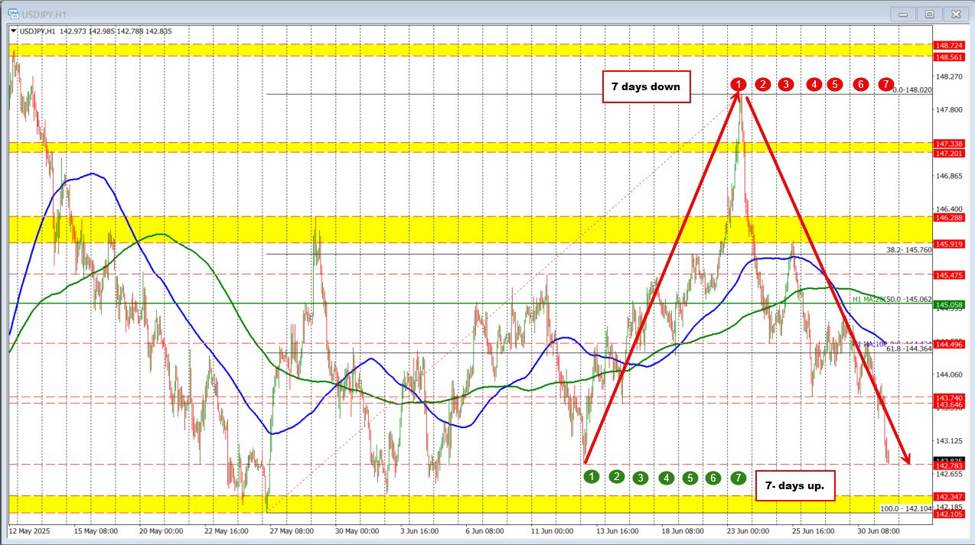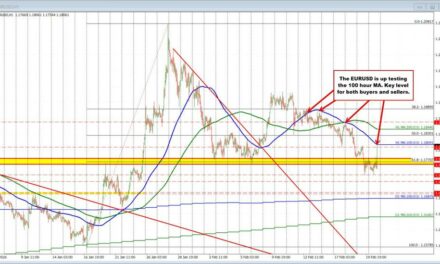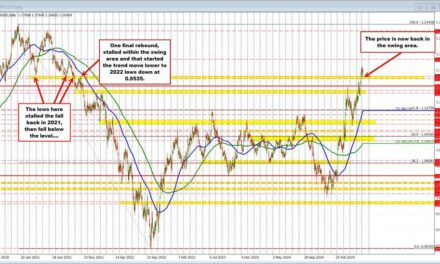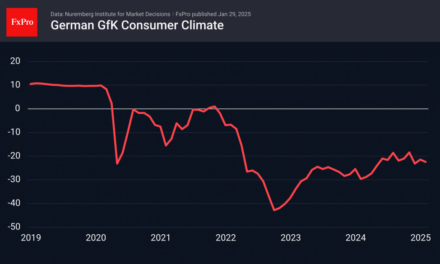In the video above, the USDJPY is leading with a decline of -0.78% to start the US trading day. The USDJPY is now down over 500 pips since peaking last Monday at 148.02. The low today reached the low from June 13 at 142.78 (very symetrical – see chart below) . That low on June 13 started a similar move higher to the decline seen over the last 7 days.
The EUR and GBP are also stronger vs the USD (the trend in the USD continues) with the USD falling by -0.26% and -0.22% respectively vs. those currencies.
In the video above, I focus on the technicals given the moves with a focus on the bias, the risk and targets.
The one, big beautiful bill is “proceeding” according to Pres. Trump.
In news headlines, the Eurozone headline inflation for June came in at +2.0% year-over-year, matching expectations and slightly up from +1.9% in May. Core CPI remained steady at +2.4%, also in line with forecasts and unchanged from the prior month. With inflation showing limited movement, the data is unlikely to alter the current narrative, and the ECB is expected to keep monetary policy on pause through the summer
At 9:30 AM ET, a high-profile policy panel will take place at the European Central Bank’s annual Sintra forum, featuring key global central bankers. Scheduled for 1330 GMT (0930 US Eastern), the panel includes Federal Reserve Chair Jerome Powell, ECB President Christine Lagarde, BoE Governor Andrew Bailey, BoJ Governor Kazuo Ueda, and BoK Governor Chang Yong Rhee. Their discussion is expected to provide critical insights into the current direction of global monetary policy. It sounds on the surface a chance for fireworks, but in reality, with all together, they will likely keep things pretty standard and if pushed will differ to being ambivalent. Do not expect Chair Powell to respond to any questions regarding Pres. Trump and his term nor his call to cut rates to 1%, other than say he serves the people with a mandate on inflation and employment.
Overnight in central bank news and commentary:
- BoJ’s Masu expressed no strong disagreement with the view that underlying inflation remains below the 2% target, highlighting the need to scrutinize price developments following recent commodity spikes, particularly with reference to rice. He noted that current conditions do not justify an immediate rate hike, and any policy moves must be approached cautiously. While a weaker yen may have boosted corporate profits, it has also led to negative impacts on consumption due to higher import costs. Masu acknowledged that the BoJ will eventually need to unwind its substantial ETF holdings, but stressed that this must be done carefully. When asked whether he is a dove or hawk, he said he “probably stands in the middle” without a strong bias.
- ECB Vice President Luis de Guindos commented that the eurozone economy is expected to see near-zero growth in Q2 and Q3, and that the risk of inflation undershooting the 2% target is minimal. Notably, he remarked that EURUSD at 1.17 is acceptable and even 1.20 could be tolerated, but anything higher would pose challenges—suggesting a soft cap on the currency’s rise. He also downplayed the effectiveness of further rate cuts, emphasizing the need for greater economic certainty. His openness on specific exchange rate levels stands out as rare and potentially market-moving.
- ECB policymaker Joachim Nagel stated that monetary policy is now in a neutral zone, with inflation currently in a stable phase. However, he cautioned that the ECB cannot afford to become complacent about potential inflationary pressures. His comments reinforce the broader narrative that the ECB is in a pause mode for the summer, with no imminent policy changes expected in the near term.
- BoE Governor Bailey emphasized the need to closely monitor the effects of declining inflation, noting that the labour market is softening. He stated that the path of interest rates will trend gradually lower and expressed doubt about a rebound in cyclical productivity. Bailey acknowledged a steepening of the long-term bond yield curve, though he sees nothing unusual about the UK’s situation in that regard. He dismissed the idea that quantitative tightening (QT) is causing the steepening, attributing it instead to heightened global economic uncertainty. He also believes there can be no sustained growth without stable and low inflation. While investors seem unconcerned about UK debt viability, rising uncertainty is affecting economic activity and business confidence, with firms telling him they are delaying investment decisions.
On US trade deals, late yesterday Hassett implied deals would more likely be after July 4. However, the WH implied a deal with India was imminent.
- From the EU, they are reported to be demanding immediate tariff relief in key sectors as part of any trade deal with the US, insisting it take effect as soon as an initial agreement is reached—not delayed until a final deal. Many EU members consider a deal without this condition unacceptable, according to Reuters sources. Trump will likely respond, it depends on what are you giving me.
- Meanwhile the FT is reporting that The Trump administration is shifting its trade strategy toward narrower, issue-specific agreements in an effort to secure quick wins before steep reciprocal tariffs—up to 50%—are reinstated on July 9, according to the Financial Times. These “agreements in principle” aim to delay harsher tariffs for cooperating countries, though a 10% baseline tariff would still apply during ongoing broader negotiations. This marks a step back from Trump’s earlier plan for 90 comprehensive deals in 90 days. Despite the narrowed focus, the administration is still weighing targeted tariffs on key sectors.
The broader US indices made new records yesterday. Today those indices are marginally lower.
- Dow industrial average -48 177 points
- S&P index -17.7 points
- NASDAQ index -80 points
in the US debt market yields are lower helping to support the dollar’s decline (and Pres. Trump’s bias
- 2-year yield 3.715%, -0.6 basis points
- 5-year yield 3.71%, -1.2 basis points
- 10 year yield 4.206%, -1.9 basis points
- 30 year yield or .748%, -2.6 basis points
In other markets:
- Crude oil is trading up $0.43 or 0.66% at $65.04
- Gold is trading up $48 or 1.4% at $3352
- Bitcoin is trading down $606 at $106,573
ForexLive.com
is evolving into
investingLive.com, a new destination for intelligent market updates and smarter
decision-making for investors and traders alike.







